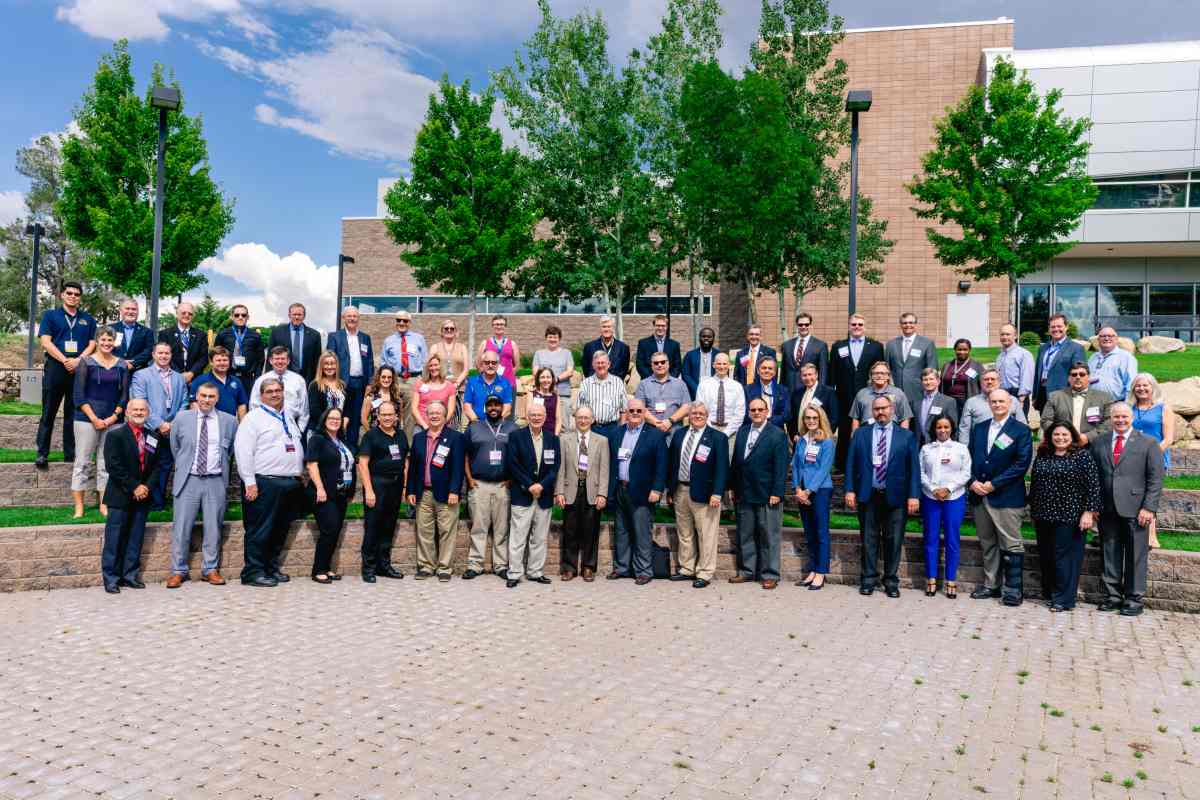Aviation Accreditation Board International Representatives Visit Prescott Campus

PRESCOTT, Ariz. – Aviation Accreditation Board International (AABI) attendees from around the world recently gathered at Embry-Riddle Aeronautical University’s Prescott Campus to discuss, simulate, analyze and problem-solve at AABI’s annual meeting.
AABI is a specialized and professional accrediting organization comprised of representatives from all segments of the aviation field. Their mission is to advance quality aviation education worldwide through accreditation and leadership. AABI accredits aviation degree programs at the associate, baccalaureate and graduate levels in several non-engineering professional fields, including aviation management, flight education, air traffic control, aviation maintenance, aviation electronics, aviation safety science, aviation studies and unmanned aircraft systems.
The five-day event brought together 125 leaders from industry and higher education with the goal of enhancing aviation education and training worldwide through a variety of interactive events. The “Simulated Accreditation Visit” featured a mock-evaluation of Embry-Riddle’s Aeronautical Science Program, with AABI team members examining facilities and meeting with students, advisors, faculty, flight staff, industry advisory board (IAB) members and administrators.
The “Industry/Educator Forum,” a 24-year AABI tradition and cited as a ‘best practice’ by the Council for Higher Education Accreditation (CHEA), was an opportunity for industry and educators to exchange ideas and discuss topics of mutual interest, including the worldwide pilot shortage that has ultimately led to a flight instructor shortage — as well as the profession of aircraft dispatching and the looming shortage of dispatchers within the airlines as well as other segments within the industry.
“We discussed an AABI-proposed initiative that has become known as an ‘Instructor Lease Back Program’ where newly hired or commissioned pilots would return to their universities to serve as check-, multi-engine or CFI-candidate instructors,” said Dr. Juan Merkt, Chair of Embry-Riddle’s Aeronautical Science Department in Prescott and AABI Board of Trustees Member. “It was nice to see airlines and military representatives seated at the same table with universities, working together to find solutions for enhancing the pilot pipeline.”
A report summarizing recommendations from Forum participants will be posted later on the AABI website.
Embry-Riddle was one of the first four universities to apply for AABI accreditation in 1991, receiving the first program accreditations in 1992. Currently, the University has a total of 16 degree programs accredited by AABI. Specialized accreditation has three fundamental goals: To ensure the quality of an accredited program, to assist in the improvement of the program, and to maintain the relevance of education within the industry it serves.
“Students, educators and industry professionals can become involved in helping AABI meet the above goals,” added Merkt. “Thus, everyone can make a difference in this important effort to ensure that tomorrow’s aviation professionals are the best and brightest — and that they are prepared to meet the professional challenges facing them.”
AABI membership includes leaders from major and regional airlines, aircraft manufacturers, aviation service providers, aviation trade associations, as well as aviation educators from colleges and universities in the USA, Canada, China, Greece, Nigeria, Peru, Poland, Puerto Rico and Turkey.
To learn more about AABI, visit: http://www.aabi.aero/

 Jason Kadah
Jason Kadah